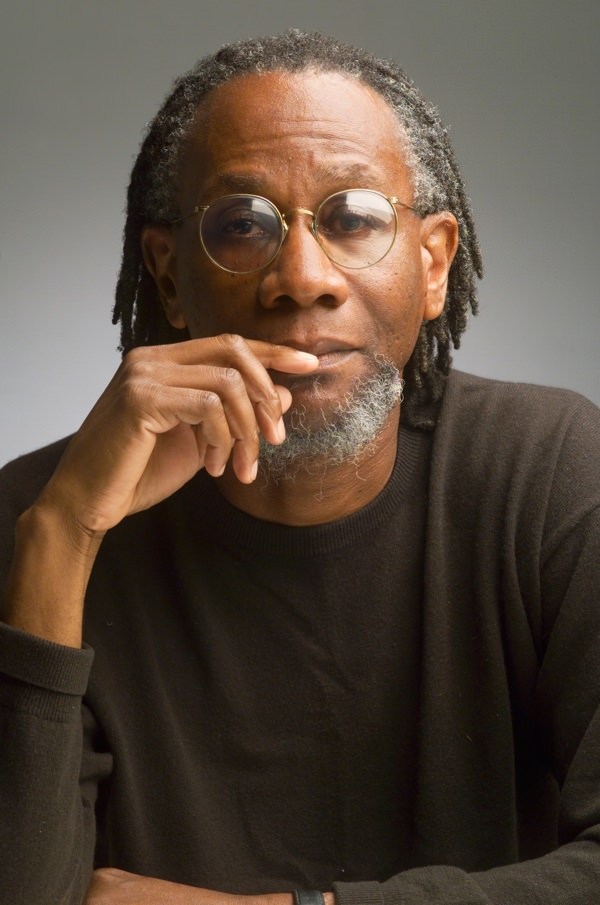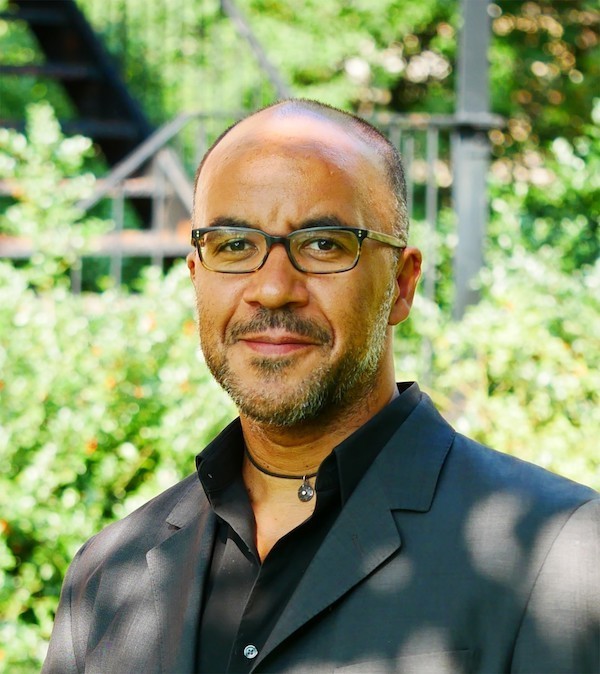2022 Annual Meeting Keynote Speakers
We are delighted to announce the keynote speakers for the 2022 CHCI Annual Meeting. On the opening night of the conference, Nathaniel Mackey will give a poetry reading. On the following day, Massimo Leone will be our keynote speaker, while Akira Mizuta Lippit, will deliver the Srinivas Aravamudan Memorial Lecture.
AKIRA MIZUTA LIPPIT

Vice Dean of Faculty and Professor of Cinema and Media Studies, School of Cinematic Arts, University of Southern California; Professor of Comparative Literature and East Asian Languages and Cultures, USC Dornsife College
Akira Lippit’s interests are in world cinemas, critical theory, Japanese film and culture, experimental film and video, and visual studies. His published work reflects these areas and includes four books, Ex-Cinema: From a Theory of Experimental Film and Video (California, 2012); Atomic Light (Shadow Optics) (Minnesota, 2005); Electric Animal: Toward a Rhetoric of Wildlife (Minnesota, 2000); and his most recent book, Cinema without Reflection: Jacques Derrida's Echopoiesis and Narcissism Adrift (Minnesota, 2016). At present, Lippit is completing a book on contemporary Japanese cinema, which explores the physical and metaphysical dimensions of the "world," and another on David Lynch’s baroque alphabetics. Widely translated, his work has appeared in numerous journals and anthologies. He is past recipient of the Fulbright-Hays and Japan Foundation awards. Lippit is active in the film community as a programmer, interviewer, and jury member, and has been deeply involved in the Academy of Motion Picture Arts and Sciences’ Visual History Project. Lippit is Senior Editor of the journal Discourse and serves on the editorial board of Film Quarterly. He regularly teaches, lectures, and publishes in Japan, where he is a founding editor of the visual culture journal Ecce.
"Persona non grata" abstract: This paper resumes a series of inquiries that had begun long before the interruptions of the past several years and asks whether the pandemic has changed in some fundamental ways the nature or premises of questions regarding personhood. The phrase “persona non grata,” deployed primarily as a diplomatic idiom, refers to those individuals, typically foreign, that are no longer welcome by the State. By refusing to acknowledge the legal status of the unwelcome, the State also implies that they are, perhaps, no longer considered persons at all. What transgressions must one commit—ethical or legal, actual or imaginary—to be rendered non grata? And are such transgressions always assumed also to be violations of personhood as such? Are refugees, for example, the exiled and stateless, also persona non grata? This paper seeks to raise preliminary questions about the forms of violence against personhood that have made some unwelcome, no longer personable. Orbiting the various ideas implanted within the term person—from the private (personal) to the public (personae) to matters of character (personality)—are questions of the very conditions of the human and its face, the persona. Presented as a series of observations, “Persona non grata” also explores the other side of personhood, the impersonal, asking what has happened to the state of hospitality in the wake of the pandemic?
NATHANIEL MACKEY

Reynolds Price Distinguished Professor of Creative Writing, Department of English, Duke University
A poet, novelist, and critic, Nathaniel Mackey works in the areas of modern and postmodern literature in the U.S. and the Caribbean, creative writing, poetry and poetics, and the intersection of literature and music. His latest book, the three-volume Double Trio (New Directions, 2021), weaves together two long serial poems, “Song of the Andoumboulou” and “Mu,” that he has been writing for over three decades. His numerous other works of poetry, fiction, and criticism include, most recently, Blue Fasa (New Directions, 2015), Late Arcade (New Directions, 2017), and Paracritical Hinge: Essays, Talks, Notes, Interviews (Iowa, 2018), respectively. Strick: Song of the Andoumboulou 16-25, a compact disc recording of poems read with musical accompaniment (Royal Hartigan, percussion; Hafez Modirzadeh, reeds and flutes), was released in 1995 by Spoken Engine Company. He is editor of the literary magazine Hambone. His book of poetry Splay Anthem(2006) won the National Book Award. Recent honors in his distinguished career include the William B. Hart Residency in Poetry at the American Academy in Rome (2016), the Rebekah Johnson Bobbitt National Poetry Prize from the Library of Congress (2017), and election to the American Academy of Arts and Sciences (2018).
MASSIMO LEONE

Professor, Philosophy and Educational Sciences, University of Turin, and Professor, Department of Chinese Language and Literature, University of Shanghai, China
Massimo Leone is Full Tenured Professor (“Professore Ordinario”) of Philosophy of Communication and Cultural Semiotics at the Department of Philosophy and Educational Sciences, University of Turin, Italy and Permanent Part-Time Visiting Full Professor of Semiotics in the Department of Chinese Language and Literature, University of Shanghai, China. He is a 2018 ERC Consolidator Grant recipient, the most important and competitive research grant in Europe. He graduated in Communication Studies from the University of Siena, and holds a DEA in History and Semiotics of Texts and Documents from Paris VII, an MPhil in Word and Image Studies from Trinity College Dublin, a PhD in Religious Studies from the Sorbonne, and a PhD in Art History from the University of Fribourg (CH). http://www.facets-erc.eu/team/...
BRENT HAYES EDWARDS

Peng Family Professor of English and Comparative Literature, Columbia University
Update (May 16, 2022): Unfortunately, Edwards will not be able to attend our Annual Meeting to deliver his keynote address. We wish him the very best. In his place, Massino Leone (above) will virtually present a keynote address.
Brent Hayes Edward is the author of two award-winning monographs, Epistrophies: Jazz and the Literary Imagination (Harvard, 2017) and The Practice of Diaspora: Literature, Translation, and the Rise of Black Internationalism (Harvard, 2003). With Robert G. O’Meally and Farah Jasmine Griffin, he co-edited the collection Uptown Conversation: The New Jazz Studies (Columbia, 2004). His research and teaching focus on topics including African American literature, Francophone literature, theories of the African diaspora, translation studies, archive theory, black radical historiography, cultural politics in Paris in the 1920s and 1930s, surrealism, experimental poetics, and jazz. He served as the Harlem Renaissance period editor for the revised 3rd Edition of the Norton Anthology of African American Literature published in 2014. His translations include essays, poems, and fiction by authors including Edouard Glissant, Aimé Césaire, Jacques Derrida, Jean Baudrillard, Sony Labou Tansi, and Monchoachi, as well as Michel Leiris’s 1934 book Phantom Africa (Seagull Books, 2017), for which Edwards was awarded a 2012 PEN/Heim Translation Fund Grant. Edwards was a 2015 Guggenheim Fellow, and in 2020 he was elected to the American Academy of Arts and Sciences.
"The Mask of the Translator" abstract: Conceived as an exercise in experimental criticism, this lecture will revisit Edwards's translation of Michel Leiris's 1934 Phantom Africa, a monumental classic of the French anthropological tradition. If it is famously obsessed with masks and masking both in terms of African traditions of costumed performance and in terms of the duplicities of colonialism, Phantom Africa is equally concerned with translation as a practice that can obfuscate as much as it can convey. The lecture will aim especially to think about the pivotal if often faceless (whether veiled or uncredited) role of the Black translator in the ethnographic encounter.
SARA GUYER

CHCI President, Professor of English and Dean of Arts & Humanities at the University of California, Berkeley
Sara Guyer has devoted her entire career to teaching, advancing, and serving the humanities. Until August 2021, she was Dorothy Puestow Draheim Professor of English and Jewish Studies at the University of Wisconsin-Madison, where she directed the Center for the Humanities for over a decade. She is the author of Romanticism after Auschwitz (2007) and Reading with John Clare: Biopoetics, Sovereignty, Romanticism (2015) and the editor of the book series Lit Z.